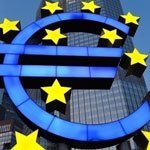
The current readiness by both Zimbabwean government officials and the European Union (EU) diplomats to re-establish cordial relations after over a decade of acrimonious relations has been a positive development, notwithstanding the last unfair elections.
Vivid Gwede
When they became estranged, both sides explained that the disagreement was based on the incompatibility of purported, clear-cut principles.
The EU said its decision to impose restrictive measures on the Zimbabwean officials was based on its respect for the principles of human rights, good governance and democracy which the same officials had consistently and flagrantly violated.
The bloc cited the gamut of violations as a gory land reform, stolen elections, political violence and widespread, protracted attacks on civil and political rights.
Zanu PF elites said that the disengagement with what they labelled the racist, neo-colonialist and imperialist European community was good for the preservation of the ethos of the liberation struggle and sovereignty, and even actively encouraged the rift by pulling the country out of such organisations as the Commonwealth.
All these developments had dire consequences for the generality of Zimbabweans. And, for some time, it seemed that there would be irreconcilable differences, while the standoff itself supposedly exacerbated a socioeconomic and political crisis, and, at one point, a big humanitarian tragedy that had also fed into the standoff.
The fresh reconciliatory dynamics in Zimbabwe-EU relations have raised a lot of questions, because of their hurried pace. The parties’ muteness on the principles that are guiding the rapprochement is surprising.
- CCC urged to push for dialogue over reforms
- A peep into Matenganyika’s artistic closets
- The Bioskop Short Film Competition is back
- Mangwe farmers benefit from agric projects
Keep Reading
It should be reasonable that such momentous reconciliation has to be premised on some overt principles as the standoff was anchored on publicised standpoints. Yet, remarks last month by EU Head of Delegation to Zimbabwe, Aldo Dell Ariccia, at a Crisis in Zimbabwe Coalition meeting in Harare where he seemed to praise the slowly recuperating country’s leadership with no objective justification are discouraging for those yearning for that commonsense.
It is worrying for those desirous of a guided approach informed by a people-centred sustainable development agenda that is rooted in human rights and democratic reforms.
The Zimbabwe government is one of the few sitting African governments, which has violated people’s rights and officials could soon enjoy un-breached impunity courtesy of the European policy shift sans benchmarks.
One such reason for a hurried and unprincipled re-engagement has already been flagged out by some analysts as the need to beat China in the rush for resources and markets in Africa, using the Asian country’s own mindset and model of conducting business with Africa’s ruling class without paying attention to the welfare of Africa’s people.
Zanu PF will embrace that kind of relationship for obvious reasons. We probably see now, if the Zim-EU re-engagement is not handled properly, an elite collusion with an undemocratic black ruling class, and little desire to make it wholesomely improve and reform its governance culture with potentially disastrous consequences for the Zimbabwean people?
Ironically, it was from the direct backlash of that old elite collusion through such things as absolute lack of moral disapprovals over the Matabeleland/Midlands conflict, earlier dishonest and elite pacts over the land question, and later the Economic Structural Adjustment Programme (ESAP), where Zimbabwe’s current social crisis primarily emanated before eventually growing into a political and humanitarian problem.
Vivid Gwede is a democratic activist and writes in his personal capacity. He can be contacted at [email protected]











